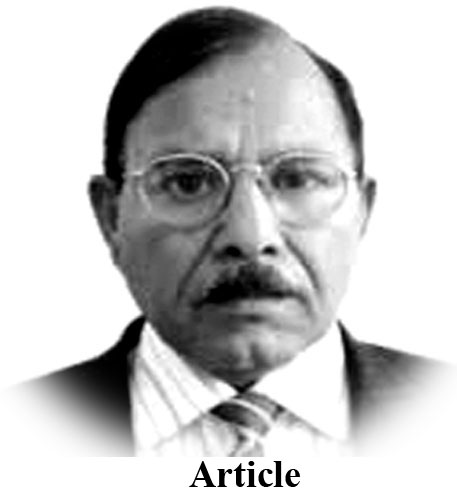Malik Ashraf
MANAGING an economy like Pakistan is the most arduous task due to the internal and external factors, more so when a government inherits it in a complete shambles. There is no denying the fact that the incumbent government inherited an economy with whopping public debt and had no choice other than to seek assistance from the friendly countries and approaching the IMF for a bailout package. Going to IMF is not as reproachable as the opposition parties and detractors of the government have been trying to portray. Beginning from 1958 all the governments have sought assistance from the IMF to rectify their balance of payments situations and avoiding default on previous loans. What really matters is the productive utilization of the loans taken and introduction of the reforms that lead to broadening of the tax base and elimination of the informal economy.
Governments require indigenously raised resources to finance projects related to socio-economic development and public well-being. This necessitates not only expanding the tax base by bringing more and more people into the tax net but also to eliminate avenues of tax evasion through documentation of the economy as well improving the tax administration. Pakistan ranks among the countries having very low tax to GDP ratio. The consequence of this low tax to GDP ratio has been that the governments mostly relied on loans from external and internal resources to finance their developmental and other needs coupled with phenomenal increase in the non-development expenditure which has pushed the country into a debt-trap and a burgeoning budget deficit, with all the debilitating implications. The unfortunate reality of Pakistan is that successive governments both military and civilian have given false hopes to the people divorced from the ground realities, without taking steps with a futuristic approach to address the existing maladies as well as putting in place policies designed to unleash the process of sustained economic growth. They all succumbed to political expediencies and hence all their economic decisions were politically motivated with the result that the country never experienced a real change and has drifted to the ebb of an economic precipice.
Introducing reforms in the economy was indeed a very arduous task for the government and a challenge to its political will to do the right things without caring for the political cost. It is a reality that raising the prices of gas, oil, electricity imposition of additional taxes as well as removal and lowering of subsidies is hurting poorer sections of the society which are groaning under the burden of the hydra-headed inflation set in motion by these steps. However the problem was that the government had no other option available. It was a now or never situation. So better do it now than allowing the country to drift further into economic sand-pit. Tax Amnesty, Assets Declaration Scheme and the implementation of Benami law were positive measures towards documenting the economy and an essential ingredient of broadening the tax base. In the backdrop of the permeating situation it is hard to take an issue with the strategy adopted by the government to remedy the situation. The opponents of the government might try to exploit the situation by whipping up public sentiments against the government but the reality is that they also do not have any alternate plan or idea to stem the rot. The PTI government has shown the political will to take the bull by horns. Though it would be a hard path for the government to traverse but ultimately it would lead to the rectification of most of the aberrations afflicting the economy and setting the course for sustained economic development enabling the government to provide desired relief to the masses and spending on their well-being. Fixing economic aberrations requires time. There is no magic wand available to achieve the desired results in a jiffy. People will have to support the government in this task of rebuilding the economy for a prosperous future.
When the Prime Minister repeatedly says that people must have patience because better times were ahead one tends to give credence to his claims on the basis of what has been achieved so far. The reports from different sources are really encouraging. The current account deficit declined by 75% during July-December 2019, fiscal deficit was contained at 1.6 % of GDP, tax revenues increased by 16.2 %, exports increased by 4.5 %, Foreign direct investment increased by 68.3 % and rupees improved against dollar by 5%.. Pakistan was ranked among 10 best business climate providers. Moody’s shifted the credit outlook of Pakistan from negative to B3 stable. All the foregoing are positive portents. The economy surely is on revival course. The predictions about increase in the GDP growth rate of Pakistan beyond 2021 by IMF and other international rating agencies also corroborate the revival narrative of the government.
While the government was more focused on stemming the rot in the economy it did not lose sight of poverty alleviation and improving employment position in the country. In this regard Ehsas Programme, Kamyab Jawan and Naya Pakistan Housing Scheme were launched. Economists believe that the housing scheme will have spill-over effect on 40 allied industries with prospects of creation of thousands of jobs. To address the supply side constraints and taming inflation the government is also providing a series of subsidies to industrial and agriculture sectors, including on gas and electricity.
— The writer is freelance columnist based in Islamabad.










